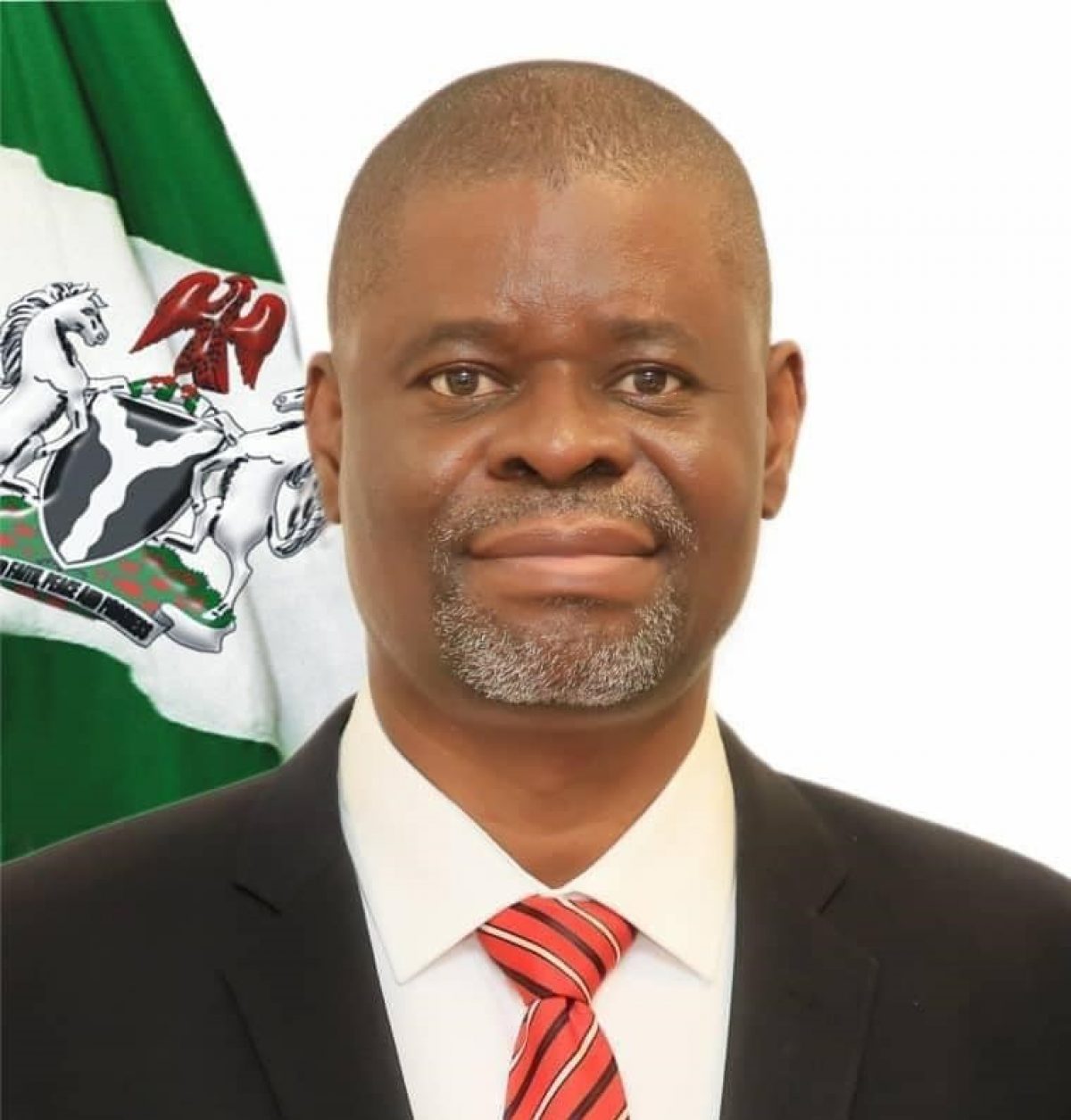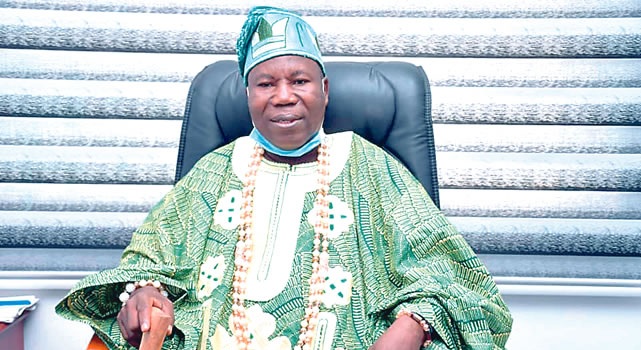Sen. Ovie Omo-Agege and Social Security Law for Nigeria
By Otive Igbuzor, PHD
Chief of Staff to the Deputy President of the Senate
E-mail: [email protected]
INTRODUCTION
Government exists to provide for the security and welfare of citizens. It is well recognised all over the world that peace and security of life and property are the primary conditions for progress and development of any society.[1] In line with this, the 1999 Constitution of the Federal Republic of Nigeria provides that the security and welfare of the people shall be the primary purpose of government.[2] The 1999 constitution (as amended) further provides for social protection under the fundamental objectives and directive principles of state policy. The basic principles include the State’s obligations to secure the maximum welfare, freedom and happiness of every citizen; provide suitable and adequate shelter, suitable and adequate food, reasonable national minimum living wage, old age care and pensions, and unemployment, sick benefits and welfare of the disabled; ensuring that all citizens have the opportunity for securing adequate means of livelihood as well as adequate opportunity to secure suitable employment; and ensuring that provision is made for public assistance in deserving cases or other conditions of need.
SEN. OVIE OMO-AGEGE AND SOCIAL SECURITY LAW
Despite the constitutional provision for social protection, there is no law to ensure its implementation especially as the constitutional provision is in chapter two that is not justiciable. However, the place of law making in bringing about change and reform to affect the lives of citizens is well recognised. Meanwhile, the preamble of the All-Progressives Congress (APC) Constitution clearly states that “we are true progressives and patriots determined to render service at all levels of governance; and to build a nation which will guarantee equal opportunity for all, mutual and peaceful co-existence, respect and understanding, eliminating all forms of discrimination and social injustice among Nigerians.” In addition, the manifesto of the party clearly states that its mission is “to construct a progressive state anchored on social democracy, where the welfare and security of the citizenry is paramount.” Programming by a government anchored on social democracy should prioritise social protection, social housing and provision of public social services to the people.
Nigeria has a huge challenge with poverty and lack of social protection. Poverty is deep and widespread in Nigeria despite enormous human and natural resources in the country. There is poverty in the midst of plenty. Twenty years ago, China hosted the largest number of poor people in the world followed by India with Nigeria in the third position. But in the last two decades, China has lifted over 730 million people and India has lifted over 170 million people out of poverty partly as a result of implementing social protection programmes. That is why today, Nigeria hosts the largest number of poor people in the world despite the fact that its population is less than a quarter of China or India.
It is in consideration of all of these that Sen. Ovie Omo-Agege has sponsored a bill for an act to establish the National Social Security Commission (NASSCOM) for the regulation, management and administration of social benefits and services and other related matters, 2022. The bill to establish the National Security Commission (NASSCOM) seeks to provide a comprehensive legal and governance framework for the proper administration and management of an inclusive, integrated, preventive, promotive and transformative national social security protection system that offers and provides sustainable and adjustable periodic benefits and grants to eligible Nigerian citizens who face improvident conditions and contingencies that are within the scope of the social security (minimum standards) Convention , 1952 (No 102) of the International Labour Organisation. It provides for contingencies arising from medical care of a preventive or curative nature; sickness, including incapacity to work resulting from a morbid condition; unemployment; old age; broken or unsustainable family maintenance; excessive maternity burdens; invalidity and loss of breadwinner support. The bill provides for the establishment of the National Social Security Commission (NASSCOM) which shall among other things determine the beneficiaries of social security benefits across the federation; determine, administer and monitor social security benefits; build and secure national social security database and promote innovative employment solutions.
For the funding of the social security programme, the bill provides for the establishment of the National Social Security Commission Fund (NASSCOM-FUND) to be funded from take off grants and budgetary allocations, 0.5 percent of the annual budget of the federation, 0.5 percent of Value Added Tax collected by Federal Inland Revenue Service (FIRS), 0.5 percent of royalties from all oil and gas related payments, 0.05 percent of all Ports and Marine related charges and other fees, incomes, grants and aides received by the Commission.
EXPERIENCES FROM OTHER COUNTRIES
There is huge evidence of theory and practice of Social Protection across the world. In 2019, the International Labour Organisation (ILO) published 100 Years of Social Protection in the world which gave a compendium of 50 country good practices in building national social protection system including floors.[3] There are experiences from several countries that have demonstrated the benefit of social protection. In South Africa, social transfers reduced poverty gap i.e. the extent to which poor people fall below the national poverty line by 47 percent. In Mauritius, the old age pension reduced the proportion of households living below the poverty line from thirty percent to six percent. In Tanzania, the International Labour Organisation (ILO) estimates that a universal benefit for school age children (between seven and fourteen years) would reduce the number of people living below the poverty line by one third.[4] According to the McKinsey Global Report, 2018, China lifted 713 million people and India 170 million people out of poverty between 1990 and 2013. They achieved this feat through inclusive, pro- poor growth; fiscal policies for wealth redistribution; employment generation; public service provision and social protection.[5]
CONCLUSION
This bill if passed into law has the potential to change the trajectory of the poverty profile in Nigeria and meet the needs and aspiration of the most vulnerable persons in Nigeria especially the extreme poor, the old, women and persons living with disability. There will be a public hearing on the bill on 23rd March, 2022. Sen. Ovie Omo-Agege has done what a good legislator should do to meet the wishes and aspiration of his constituents and other Nigerians. The ball is now in the courts of enlightened citizens, civil society organisations working on social protection, development partners, the media and indeed all well-meaning Nigerians to engage the process and ensure that the bill is eventually signed into law. This is the path to re-inventing our country and dealing with the myriad of challenges confronting our people.
ENDNOTES
[1] Arase, S. E. And Iwuofor, I. P. O. (2007), Policing Nigeria in the 21st Century. Ibadan, Spectrum Books Limited.
[2] Constitution of the Federal Republic of Nigeria 1999
[3] Ortiz, Isabel; Schmitt, Valerie and De, Loveleen (2019), 100 Years of Social Protection: The Road to Universal Social Protection Systems and Floors. Volume 1: 50 Country Cases. Geneva, International Labour Organisation.
[4] Royal Hunger and Vulnerability Programmes-Why Social Transfers: The Economic Case
[5] Nino-Zarazau, M. and Addison, T. (2012), Redefining Poverty in China and India. Japan, United Nations University.


